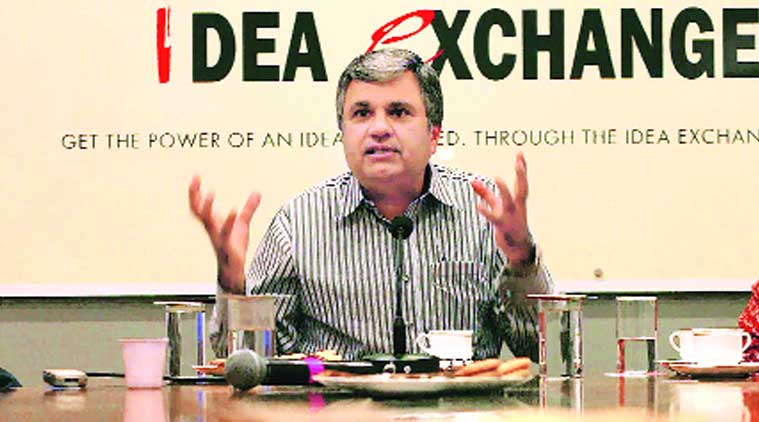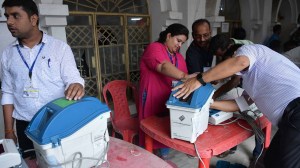- India
- International
International Financial Centre? Forget it, says Percy Mistry
Mistry was appointed by former finance minister Chidambaram in 2005 to work on a blueprint for a global financial centre in Mumbai which could compete with London, Tokyo and Singapore.
 Intolerance won’t attract global talent, says author
Intolerance won’t attract global talent, says authorof roadmap on India’s financial capital
The “absurd actions” of the BJP-Sena government in Maharashtra to promote a “regressive faux-Hindutva agenda” are turning Mumbai into a city that is “anything but global or cosmopolitan in its outlook.” And threatening its prospects to emerge as a successful International Financial Centre, or IFC, according to Percy Mistry, who headed the expert committee which first recommended that the IFC be promoted in India’s financial capital.
Speaking to The Indian Express, Mistry said that issues such as the beef-ban or political inclination toward violence and actions of the two factions of the Sena, and the current governments at city and state levels, will prevent the city from attracting top-flight talent to a globally competitive financial sector.
[related-post]
“They will ensure that Mumbai will never become an IFC of any note or utility to India or the world. But they will also ensure that the most talented, entrepreneurial people (of whatever race, religion, persuasion) who have contributed to making Mumbai what it once was, will feel obliged to leave over time and abandon it to a much worse fate,” Mistry said.
Mistry, based in the UK, was appointed by former finance minister P Chidambaram in 2005 to work on a blueprint for a global financial centre in Mumbai which could compete with London, Tokyo and Singapore. The reason why Frankfurt, Paris and Tokyo are not as successful IFCs as London is, he said, because they are not as global.
“They are too German, French and Japanese, whereas London and New York have become capitals not just of their countries but of the world at large,” said Mistry, who had earlier worked with World Bank as a senior financial advisor for over a decade and now heads the Oxford International Group which advises governments on macroeconomic management and the development of their financial services sector.

“It is a great pity that the kind of mean spirited narrow-mindedness, portraying the most offensive, intolerant kind of Hindutva, and now even intolerant Jainism, riding on the back of the BJP-led government, have turned these religions into paradoxical parodies of themselves and what they stand for. They are betraying everything — especially the all-embracing, large hearted tolerance that Hinduism and Jainism were once famous around the world for — that India stood for, exemplified and admired by the world for, at independence,” Mistry said.
The Mistry committee, in its report submitted to the Finance Ministry in 2007, had said that the kind of talented individuals Mumbai should seek to attract in positioning itself as a globally competitive financial centre are those who are multi-culturally inclined in terms of their habits, tastes and preferences.
Considering the ample choices these individuals have to work out of any global city, providing world-class facilities in terms of living, work and play besides global standards of urban infrastructure and governance would be critical, it said.
But there has been little progress after Chidambaram first announced in his 2005 budget the government’s intention to promote Mumbai as a financial centre, given the city’s strategic location and advantage of a time zone which would enable connecting with the financial markets in the Far East before the markets close there and catching up with the action when it opens in London.
It was also based on the country’s potential to export financial services and a recognition that this segment could be the next growth engine for the Indian economy.
Apr 19: Latest News
- 01
- 02
- 03
- 04
- 05






































